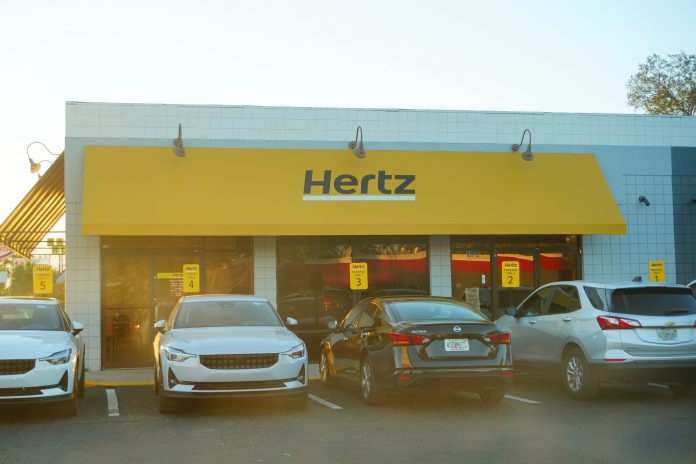Hertz Global Holdings reported a challenging Q3 2024, with revenue totaling $2.6 billion—a 5% decrease year over year. This marks the company’s fourth consecutive quarterly loss, with a GAAP net loss of $1.3 billion, representing a negative 52% margin. The results were heavily impacted by a $1 billion non-cash asset impairment charge related to declining fleet residual values.
One of Hertz’s most significant challenges lies in vehicle depreciation, which surged to $937 million in Q3, an 89% increase compared to the prior year. Depreciation Per Unit (DPU) per month was $537 during the quarter, underscoring the financial strain of maintaining and transitioning its fleet. Much of this burden stems from the company’s earlier significant investment in electric vehicles (EVs), particularly Tesla models, which have seen declining values in the secondary market. This has led Hertz to pull back from its prior commitment to convert 25% of its fleet to EVs by the end of 2024, signaling a shift in strategy amid ongoing cost pressures.
Hertz is addressing these challenges by executing a fleet rotation strategy to replace higher-cost electric vehicles with more cost-efficient options. The company expects this initiative to conclude by the end of 2025, at which time it anticipates normalizing DPU to under $300. While the transformation involves short-term setbacks, Hertz is positioning itself for long-term sustainability.
Operationally, transaction days decreased by 4% year over year to 41.3 million, reflecting a disciplined focus on higher-yielding channels at the expense of lower-margin business. Vehicle utilization declined slightly, with the Americas segment at 82% and the International segment flat at 80%. Average rentable vehicles fell by 2% to 550,074 units as part of the company’s realignment.
Despite these challenges, Hertz reported corporate liquidity of $1.6 billion, supported by $894 million in operating cash flow during the quarter. This strong liquidity position provides a buffer as the company navigates its transformation.
Hertz’s ability to streamline costs, stabilize depreciation, and optimize its fleet composition will be critical to regaining profitability. As the rental car giant adapts to, its evolving strategy could significantly impact both industry stakeholders and consumer options in the automotive rental space.



